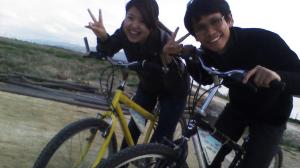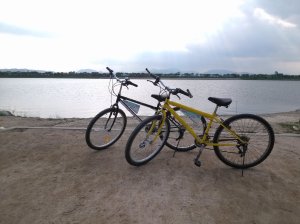I have gone through rough roads in my journey toward finally getting a PhD full funding. As of this writing, I have four days left prior to starting my doctoral program at the University of Otago in Dunedin, New Zealand. I’m all set to go. Meanwhile, it is good to look back and reflect on my experiences of applying for a PhD place and funding. These may prove helpful to some readers who have the keen interest in pursuing postgraduate studies.
There were basically two main concerns that I had to take care of: (1) secure a PhD offer of place and (2) secure my finances. If you have enough personal money to sustain your studies (fees plus living expenses), then you only need to be concerned about getting an offer of place. Let me elaborate my thoughts along these lines.
1. Where do you want to study?
This is about finding a university that will accept you into their PhD program. If you think that this is an easy process, that can only be true if you set your eyes on a university in your neighbourhood. It is a very difficult and competitive process if you seek acceptance at some of the world’s leading universities, such as those in North America, Europe, and Oceana. Suppose that you want to apply at some of these leading schools, here are some helpful guidelines:
a. Decide between a shorter and a longer PhD program. The North American (US and Canada) PhD takes about 5 to 7 years to complete, whereas the British/Australian/New Zealand PhD takes only about 3 to 4 years. The main reason for this distinction is that, whereas the North American PhD has about 2 years of coursework, the British-style PhD does not and the doctoral student immediately starts with the research project. Each system has both pros and cons and the student must choose which one suits him better. If you are that type of student who has had sufficient grounding in your course, if your research and writing skills are up to the task, and if you are hard-pressed on your time, then apply at British or Australian or New Zealand universities. But if you feel that you need some preparatory coursework to enable you to carry out your doctoral research, if you feel that your research and writing skills need further stimulation and development, and if you have much time, then apply at North American schools.
b. Choosing where to study is a matter of consequence because it affects the matter of funding. Large North American universities, such as Princeton, Yale, Duke, Notre Dame in the US and McMaster in Canada, offer fully-funded PhD programs. Receiving an offer of place in one of these universities means receiving also their abundant scholarship for the duration of the doctoral program. Small colleges or seminaries, however, may not offer fully-funded PhDs, or may not offer funding at all. Wheaton College, for example, offers funded PhD places (very limited; to my knowledge, only six students a year), but the funding may not be really big, especially if the student has a family to support.
In large British universities, admission to a PhD program is a separate matter from funding. The student has to apply separately to whatever internal or external funding schemes there are. For instance, I was offered a place at the University of Edinburgh, but there was no any funding attached to that. So I applied separately to three University funding schemes where, regrettably, I was eventually declined. With that, there was simply no way that I could start my studies at Edinburgh. Australian and New Zealand universities work similarly with British universities: admission to a PhD does not include promise of funding; scholarship has to be secured separately. Like Edinburgh, the University of Otago offered me a PhD place. I also applied separately for full funding. After months of suspenseful waiting, the great news came out that I was awarded a full scholarship: free tuition plus living stipend every year for the duration of my program.
c. Another thing that makes your choice of school very consequential is the set of application materials that you are required to submit.
American schools require GRE scores of PhD applicants. To my knowledge, British (Cambridge and Oxford are exceptions), Australian, Canadian, and New Zealand universities don’t. The GRE was probably the main reason why I was declined by all three American schools where I applied; I blew the GRE math section! If you are sure that your GRE scores (in both the Verbal and Quantitative Sections) are below the 90th percentile, then don’t apply at the US top-tiered universities. You may stand a chance at second-tiered schools and seminaries, so consider applying there.
If you are applying at schools outside the US, then the GRE will not be a concern anymore. But the TOEFL or IELTS will be, to prove your ability at the English language.
If you are applying at universities that follow the British system, then you must understand that the research proposal will be the most important document in your application. The research proposal is an extended statement of what you wish to accomplish in your PhD program. It should state the topic or the problem that you intend to research, the methodology that you wish to employ in conducting your research, a tentative outline of your project, a list of key bibliography, and a timetable. It is crucial that you get in touch with a potential supervisor from within the department of that university where you are seeking admission. You must present your proposal to this prospective supervisor, and allow the interaction to progress from this point. The potential supervisor that I contacted via email at Edinburgh was very kind and prompt in replying to my initial inquiry. According to her, my research proposal was vague and looked only as a summarising and restatement of what scholars have already written on the subject. She then advised me to revise it. I did, and her next comment was that I improved significantly, but that still I must expand on my list of bibliography to include the views of this and that author. So I revised my proposal for the second time. Then, finally, she found my proposal good and workable. She then instructed me to lodge my application with her department and promised to endorse and support it. I believe her support was they key why I was offered at place at Edinburgh.
That worked the same with the University of Otago. I submitted the same research proposal. The professor I contacted was also very kind and accommodating. He gave a different set of comments and recommendations on my proposal. For instance, he found my topic to be too broad and advised me to narrow it down. I revised it and tailored it to his suggestions. Then per his go-signal, I lodged my application with the university department. In due time, I was granted admission. I then worked on my application for full funding, which I did with much trepidation for the outcome, since Otago was literally the last university in my list that I hoped would grant me full funding. Well, after weeks and weeks of waiting on tip-toes, I got the letter confirming receipt of my full funding! I was the happiest person on earth!
2. Give yourself sufficient time.
Much time will be needed to fulfil and prepare key documents. For instance, I spent at least three months to write my dissertation topic, which was the key requirement for application in UK, Australian, and NZ universities. How much time you will need for writing your own research proposal will vary depending on your own intellectual preparedness and skill to organise your thoughts into a written proposal. The key question here is, do you have any topic in mind that is relevant and researchable? If you have, then do a quick study or survey to make sure that nobody else has yet done this particular topic or issue. Or, it is okay as well if your doctoral research aims to revisit a familiar problem but from a new perspective or using a new methodology. For sure, you will need sufficient time to draft and revise this document.
For those desiring to apply at US schools, especially at top-tiered ones where the GRE weighs crucially, you must ensure that you’ll score well on this test. In my case, 3 months of brushing up my math was simply not enough. What I would have needed was at least one year of math. I simply didn’t learn enough of math in elementary and high school, and I didn’t attend middle school because there was none in my country some years back.
3. To catch fish, cast your net broad and wide.
That’s exactly what I did. I applied at seven schools in total, not including some universities in Seoul where I had thought of applying just in case all the seven schools declined me. I applied at three universities in the US, three in the UK, and one in NZ. Of the seven, two offered me a place: Edinburgh and Otago. The other five declined me: Oxford, Nottingham, Duke, Notre Dame, and Marquette. In hindsight, I was quite thankful I cast my net broad and wide. It is also good to diversify the options to include universities in more than one nation, as I did. I chose universities in three countries! This kind of selection does not necessarily mean that we just choose any university without carefully considering whether our doctoral study there will be productive as we would desire. Our choice must be guided by such things as the presence of excellent research supervision, availability of funding schemes, research resources, and our belief/theological compatibility with the university (this last factor may not matter for others).
In conclusion, I am indeed very thankful that of the seven schools where I applied, one has accepted me and granted me full funding. This is God’s open door for me. This is His blessing. It’s a good blessing because NZ is such a beautiful place to live and study. It’s a good blessing because I will be working with a world-renowned scholar, Prof. Paul Trebilco, as my supervisor. It is now up to me to make the most of my time there, given all these blessings.

